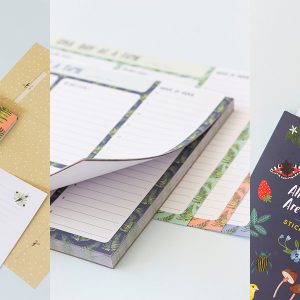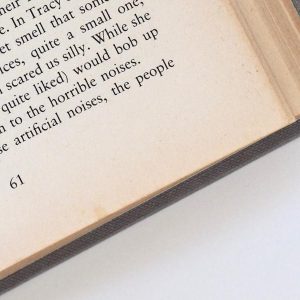You’ve just retired with a book; how lovely. Is this something that you rarely do but would so dearly like to do more often? If so, then these tips may help.
Not only is reading a great way to escape from the here and now, but you can also learn a lot from books. You become acquainted with other ways of thinking and cultures, and you learn to look at the world in a different way. Reading can bring you a lot, but where do you get the time in your daily life to actually do it?
-
Set priorities
When you have a spare moment in the day, do you reach for your smartphone or for a book? Do you prefer to sleep half an hour longer in the mornings or to read ten pages of your story? And in the evening, do you really want to watch that TV program or do you want to continue with your reading? It starts with making conscious choices for your book instead of for something else.
-
Find a genre that suits you
When you’re reading a book that you like, you want to keep reading it. As logical and obvious as that sounds, the tricky thing is that it can be hard to find out what genre really appeals to you. A good starting point is the type of films and series that you enjoy watching. Are these crime films, films that take place in fantasy worlds, romantic films? Whatever that may be, there’s a good chance that you will also like books of the same genre.
-
Stop with books that you don’t like
If, while reading a book, you find yourself thinking, ‘How will I ever get through this?’, then don’t be afraid — or too strict on yourself — to close the book and put it away. It’s perfectly okay to do so. Otherwise you will get stuck and you may not feel like reading anymore. Also, don’t feel guilty if you don’t read a book: there are so many beautiful books out there and many of them will appeal to you, so it’s a waste of time reading a story that doesn’t touch you.
-
Don’t set your goals too high
Don’t turn the act of reading into some sort of competition; it may detract from the pleasure of reading itself. Keep things realistic: ten pages per day or one book per month is a great goal if you’re starting out on the reading path.
-
Always pop a book in your bag
In the dentist’s waiting room, on the train to work, all the times that you scroll thoughtlessly on your phone: these are perfect opportunities to open your book and read. And before you know it, you’re already ten pages further.
-
Create a stockpile
It doesn’t matter if you read on an e-reader, go to the local library or buy books because they’ll look beautiful in your bookcase. The most important thing is that you have enough books on hand to continue immediately once you have finished a book. That way, it’s not so difficult to keep the reading momentum going.
-
Set a timer
This tip may help if you are easily distracted. Set a timer on your smartphone and use this time to read. Twenty minutes, for example, is long enough to be able to read a good number of pages, but not so long that your brain becomes completely exhausted. And you don’t have to keep an eye on the clock if you have to go somewhere afterward. What’s also good is the app Flipd, which enables you to block your phone for a set amount of time.
-
Join a book club
We’ve written about book clubs before. They’re a lovely way to meet others who also want to read (more) and to talk about the content of a story together. Moreover, they work like a carrot-on-a-stick: if there’s a meeting planned where you discuss a book, it really motivates you to read it.
-
Read short books
Thick books can be intimidating, and it can also be difficult to find the motivation to read such a tome when there is no end in sight. What works better is that sense of satisfaction and achievement you get when you have finished a book. Which is why short books are a great way to read more. And don’t be fooled into thinking that short stories are in any way inferior to books of more than 500 pages long.
-
Read aloud or take notes
These ways of reading help you to better understand the book and get more out of the story. When you read aloud, you cannot unconsciously scan a sentence, and you consider what is being told better. Notes are a great way to organize your thoughts about the book. If you write something down, you don’t have to think about it too long and you can continue with the story. Then, you can always go back to that beautiful sentence or special passage later.
Photography João Silas/Unsplash.com














